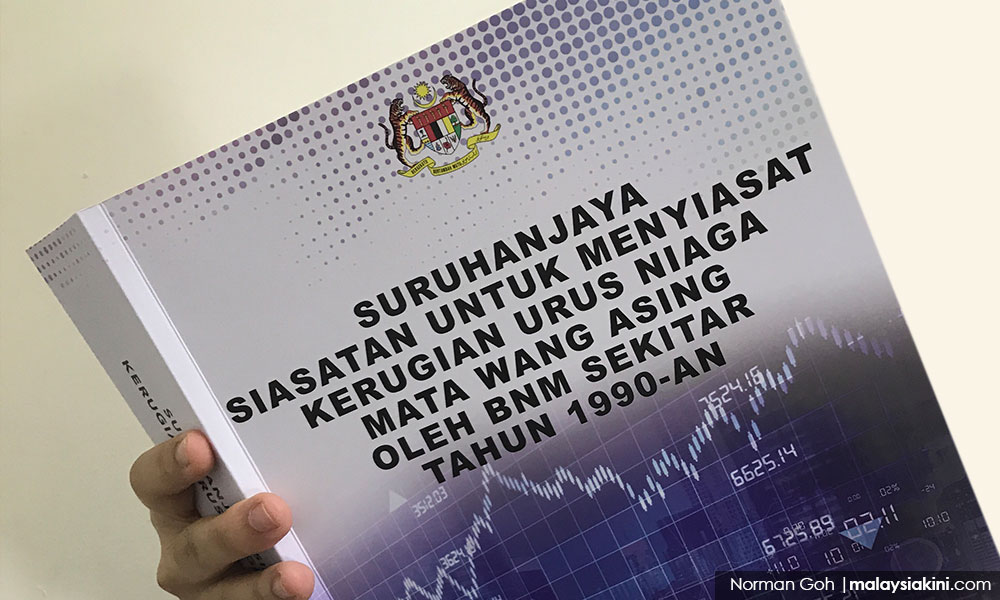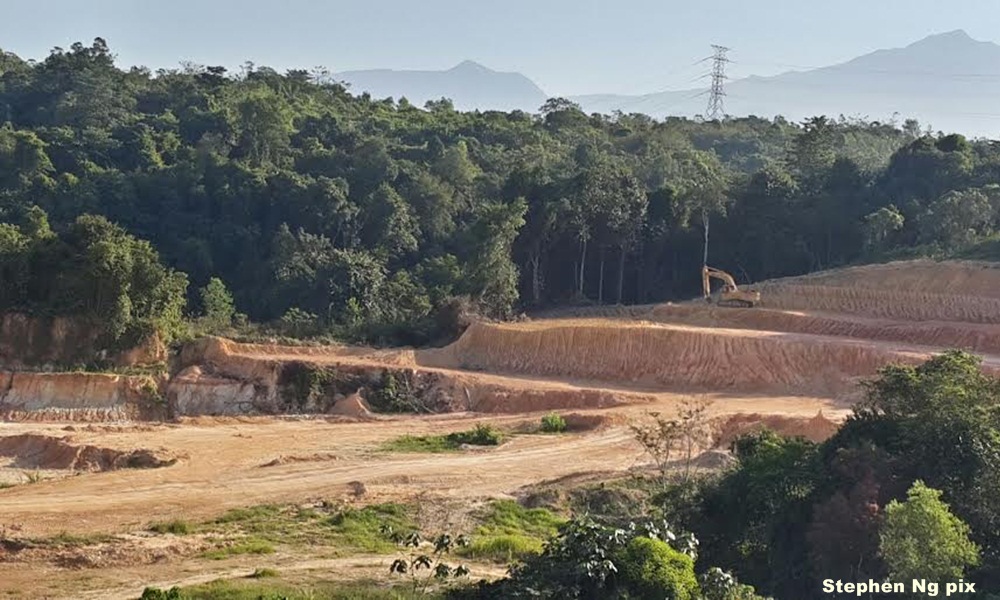COMMENT | Events in 2017 have focused attention on economic, social and cultural rights (ESCR) that are not covered in SUARAM’s monitoring of civil & political rights.
With the approaching general election, there are issues which the two coalitions need to address. The protection of economic, social and cultural rights requires rigorously applied regulation, good governance and accountability. Otherwise billions of taxpayers’ monies are squandered.
While we welcome the RCI report on the forex losses 20 years ago, we expect the government to have a standard operating procedure for setting up such RCIs the moment any financial scandal has surfaced.

Such an accountable governance practice would thus include inquiries into all the other scandals since the 80s and especially the most recent 1MDB scandal. It would also be mandatory that RCI recommendations are expeditiously carried out and not ignored as in the case of the Independent Police Complaints & Misconduct Commission (IPCMC).
Economic, social, and cultural rights include the human right to work, the right to an adequate standard of living, including food, clothing, and housing, the right to physical and mental health, the right to social security, the right to a healthy environment, and the right to education.
Forcible evictions continue to be a common practice, especially when the land has been targeted by developers, in which long-established urban settlers and plantation communities are uprooted with scant regard for their economic, social and cultural rights.
The right to potable drinking water has also been seriously compromised by the poisoning of the water supply by illegal factories near dams. Reports suggest this occurs in many states including Selangor and Malacca and for some mysterious reason, the authorities have not yet acted to evict these illegal factories.
Many schools in Sarawak, Sabah and Tamil schools in the peninsula are in such poor physical condition that they are a risk to safety. Chinese and Tamil-medium schools are built as general election goodies, one at a time rather than according to population growth and the requests of parents.
Migrant lives matter
Most of the victims of these ESCR violations are migrants and it is time that the Malaysian authorities, their corporate partners, and all employers recognise that “migrant lives matter”. Notice that when air pollution reaches hazardous levels and schools are closed, work carries on at the construction sites!

During the recent hillslope collapse in Penang, media attention was focused on the death of the sole Malaysian supervisor while there was little to no mention of the fate of the 11 migrants who lost their lives or whether their families had been compensated adequately.
The media also recently highlighted the appalling living quarters in which migrant workers continue to be housed, especially on construction sites although this has been going on for decades.
The irony is apparent as without the blood sweat and tears of these amazing men and women we would have no tall glistening glass apartment towers to state that we have arrived in the 21st century. Migrants, refugees and asylum seekers also suffer discrimination in access to medical care, work, housing and education.
Who is raising wealth redistribution in GE14?
Wealth inequality and wealth concentration in Malaysia are rising. The distribution of wealth shows that the top 10 percent of Malaysian households control 35 percent of the country’s wealth, while the bottom 40 percent own just 8 percent of the national wealth.
The Finance Ministry has revealed that some 4 percent of Amanah Saham Nasional Bhd (ASNB) unit trust holders control nearly half of the RM200 billion net asset value (NAV) or RM100 billion worth of units. In contrast, those who own less than 1,000 units, which form the bulk of fund unitholders (61 percent), have a combined value of only RM1.7 billion in units (0.8 percent of NAV).
According to Forbes, Malaysia’s 50 richest persons have a total wealth of US$70 billion, or RM280 billion. Total government revenue is only RM180 billion, out of which individual income tax revenue accounts for only RM30 billion. Inheritance tax in Malaysia was abolished in 1991.
Wage stagnation poses a real problem to Malaysia’s effort to become a “high-income” nation by 2020 while employers continue to prefer hiring cheap foreign labour and refuse to introduce the minimum wage of RM1,000 that went into effect in 2016.

The 2015 median income of half the Malaysian population is just RM600 more than the pay given to foreign labourers. The median monthly salaries and wages received by paid employees was RM1,703 in 2016. The standard of living for the bottom 40 percent will continue to be depressed as long as the economy depends on millions of low-wage foreign workers.
Meanwhile, the cost of living continues to rise. Also, unionisation has been a problem for decades especially in industries such as electronics.
According to the EPF, as of 2015, two-thirds of members aged 54 have RM50,000 or less in their accounts. This amount is likely to be used up within five years of retirement.
Yet none of the political parties in the two coalitions is raising the issue of wealth redistribution in the GE14? Do they even plan to implement progressive taxation of the rich, curb speculation and tax evasion?
Or are they in the pockets of the rich, especially the big developers who seem to have their way in the privatisation of our commons, the common spaces demarcated for communal enjoyment?
Reclaim our public assets
Does Pakatan Harapan have any plans for the following?
- reclaim our public assets especially public utilities that were privatized during the reign of Dr M;
- strengthening our public sector's health, education, housing and transport services including highways;
- regulate financial transactions and speculation;
- re-gazette all permanent forest and wildlife reserves and to ensure all local people are consulted before any development proceeds;
- protect the rights of farmers and fisherfolk and create a national food security policy with a push for food agriculture instead of commodities such as palm oil;
- distribute land fairly to all genuine farmers; to promote renewable energy projects that do not destroy forests or Orang Asal land.
During Mahathir’s reign, thousands of indigenous peoples were displaced for the Bakun Dam and other mega-dams in Sarawak and the Selangor Dam while vast wealth has been reaped by those who have exploited and owned more and more of our commons.
Take the Bakun Dam as an example; timber from an area the size of Singapore island was extracted by Ekran Bhd and on top of their failure to carry through the Bakun HEP project, Malaysian taxpayers still had to compensate the company to the tune of RM1 billion.

Developers today seem to have both coalitions in their pockets as they carve out more and more “Eco worlds” out of the pristine jungle and reclaim more and more land on our coastal shores that are all part of our commons. These incursions into hillslope jungles and our beaches have created havoc with the environment as we have seen in recent weeks.
Now we hear that the Penang State Government wants to corporatise the Penang Botanical gardens while a public park in TTDI is to be developed for condominiums. Permanent forest reserves & structure plans can be degazetted at the will of the state government.
In Selangor, the privatisation of our water assets remains unresolved. It is often said, “You can tell if a society is democratic if its water is available to everyone, if it’s clean, and in public hands.”
Our collective ownership of the commons is our birthright – it is our birthright to hold water, air, land and Malaysian nature in trust for our future generations.
We must continue our efforts to push for the protection and restoration of our commons and to defend it against the attempts by developers and their political allies to privatise our commons.
There is an English folk poem from the 18th-century enclosure movement that reminds us of the court cases over the blockades by the indigenous peoples against encroachments by timber merchants and developers:
“They hang the man and flog the woman
That steal the goose from off the common
But let the greater villain loose
That steals the common from the goose.”
KUA KIA SOONG is the director of the Malaysian Human Rights Organisation, SUARAM.
The views expressed here are those of the author/contributor and do not necessarily represent the views of Malaysiakini.

